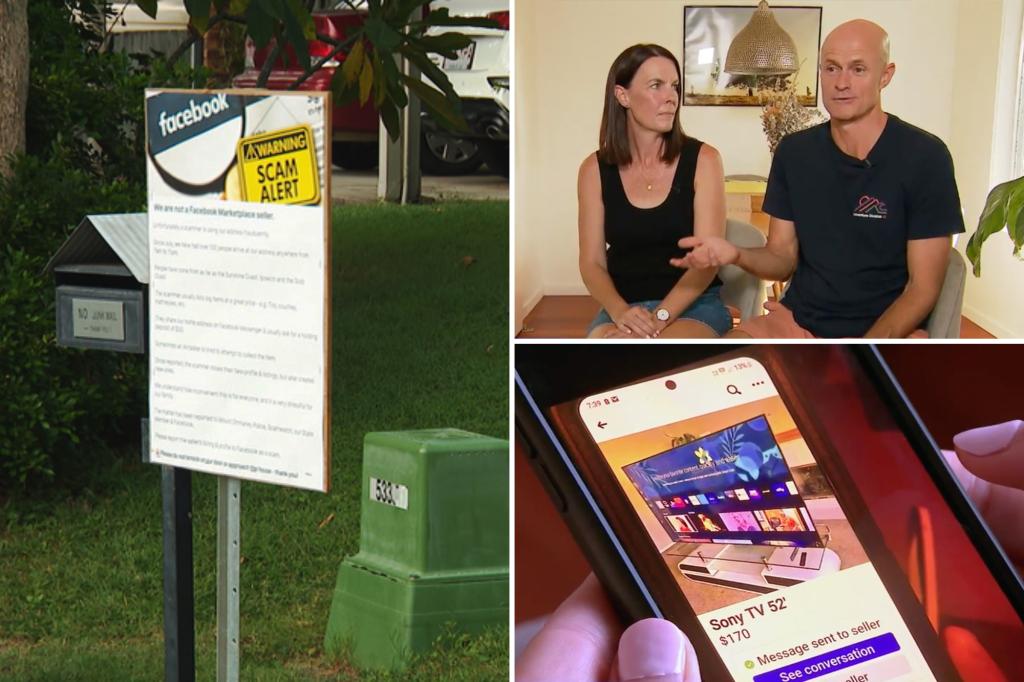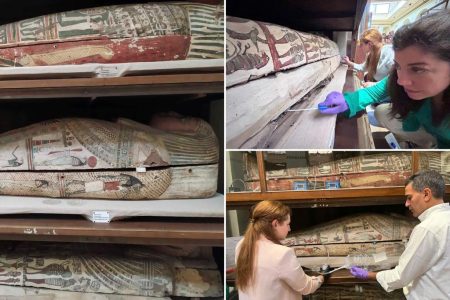A Bizarre Facebook Marketplace Scam Unfolds in Australia
In a shocking and frustrating turn of events, an Australian couple, Leah and Gerard, found themselves at the center of a massive Facebook Marketplace scam. Since July, over 100 hopeful buyers have arrived at their home, only to discover they had fallen victim to an elaborate fraud. The scammer, posing as a legitimate seller, used the couple’s address as a fake pickup location for items that never existed. This bizarre situation has left the couple dealing with the consequences of someone else’s deceit, forcing them to turn away strangers who arrived at their doorstep expecting to collect items they had purchased online.
How the Scam Unraveled
The ordeal began when a woman knocked on Leah and Gerard’s door, inquiring about a bicycle she had seen listed for sale on Facebook Marketplace. Unbeknownst to her, she was the first of many victims of a scammer who had been using the couple’s address to lure people into false transactions. Over time, more than 100 individuals arrived at their home, seeking items such as TVs, couches, mattresses, and outdoor furniture. These buyers, who had unknowingly interacted with the bogus seller, were met with confusion and disappointment when Leah and Gerard explained that they were not selling anything and that their address had been used fraudulently.
The Impact on Leah and Gerard
The situation quickly became overwhelming for the couple. Strangers began showing up at all hours of the day, from as early as 7:30 a.m. to as late as 10:30 p.m. Some had even paid deposits or hired Airtaskers to collect the items on their behalf, only to leave empty-handed. Despite politely explaining the situation to each visitor, the constant interruptions took a toll on the couple’s daily life. The stress of the situation led them to take drastic measures to protect their privacy and sanity. They erected a sign outside their home that read, "We are not a Facebook Marketplace seller," and even installed a safety barrier to deter further visitors.
The Scammer’s Tactics and the Couple’s Fight for Resolution
The scammer’s tactics were relentless. Despite the couple reporting the fake profiles to Facebook, the fraudster simply created new accounts and continued to use Leah and Gerard’s address to deceive more victims. It wasn’t until a local official contacted Meta, Facebook’s parent company, that the scam profiles were finally taken down. The couple’s experience highlights the challenges of combating online fraud, where scammers can easily evade detection by creating new accounts and exploiting trust in platforms like Facebook Marketplace.
Expert Warnings: Red Flags to Watch Out For
In response to this incident, cyber support groups like ID Care have issued warnings to Australians about the dangers of online marketplace scams. Experts advise consumers to be vigilant when transacting on platforms like Facebook Marketplace. Key red flags include sellers with no followers or profile pictures, unusually low prices, and demands for deposits or personal documents such as driver’s licenses or passports. Scammers often use fake addresses in local areas to appear trustworthy, making it harder for victims to recognize the fraud until it’s too late.
A Cautionary Tale for Online Shoppers
Leah and Gerard’s story serves as a stark reminder of the risks associated with online shopping, particularly on unregulated platforms like Facebook Marketplace. While the couple has finally begun to see some relief after the scam profiles were removed, their experience has left a lasting impact. The incident also underscores the broader issue of identity theft and financial fraud, which can have serious consequences for victims. As online marketplace scams continue to evolve, it is crucial for consumers to remain cautious and for platforms to enhance their security measures to protect users.
This bizarre and stressful ordeal has not only disrupted the lives of Leah and Gerard but has also raised important questions about the safety and accountability of online marketplaces. As the digital world becomes increasingly integral to our daily lives, stories like this highlight the need for greater vigilance and proactive measures to combat fraud.












